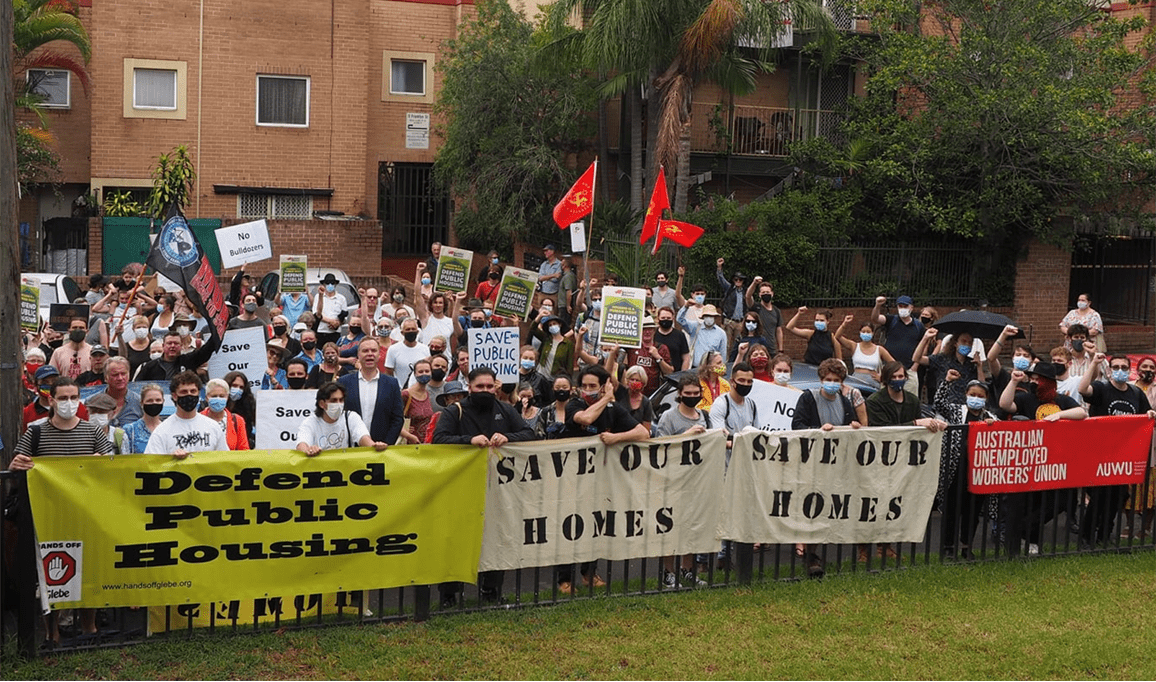The University of Sydney sits directly between the sites in Glebe and Eveleigh where public housing is now under threat of demolition from the New South Wales Government. The existing public housing, which was purpose-built to provide liveable, community space, will be demolished by developers and replaced with 70% private accommodation and 30% public housing. These actions have been planned under the ‘Communities Plus’ initiative by the NSW Government with the underlying intention of diluting the proportion of social housing in traditionally strong, lower socio-economic and working class areas.
As inner city suburbs grow in popularity, the working class, poor, disabled and elderly are continually pushed out. Developers and landlords are seeking profits in inner city areas, which has seen the cost of housing rise exponentially over the past decade. Subsequently, it becomes increasingly difficult for university students to rent houses that are close to inner city university campuses. The crisis of university students being unable to afford to live, with international students being forced to choose between food and rent, is intrinsically connected to the eviction of public housing residents. Solidarity between people who are struggling under the housing and homelessness crisis is important, as Sydney should not just belong to the rich.
Hands Off Glebe organiser Denis Doherty has expressed the need for non-public housing residents throughout the Glebe area to support their neighbours and for resident action groups at Glebe and Explorer St in South Eveleigh to strengthen connections and alliances. The residents of public housing throughout Sydney should have a seat at the table when it comes to discussing their rights, rather than being totally ignored by politicians and bureaucrats implementing the changes.
In this way, many residents have been given no clear direction about where they would live during the unnecessary construction that won’t be finished until 2025. Glebe resident Emily Bullock expressed that “the idea of having to leave is horrendous.” Additionally, the new development is inadequate for families because it will only be providing one-bedroom properties, while the existing – although run-down – properties have two to three bedrooms.
On January 30, Hands Off Glebe held a community action at Minogue Reserve where residents and supporters spoke about and marched against the changes. In their publication ‘The Glebe Grapevine’, they wrote: “Demolitions and evictions claimed to be for social mix disrupt support networks and social structures. Forced relocation from a neighbourhood brings with it serious impacts on physical and mental health.” This sentiment highlights the unfortunate human cost the changes to public housing have had.
There are currently 60,000 people on the social housing waiting list in NSW, and the type of housing needed for the families doesn’t require evicting hundreds out of their homes, it can be solved by building intentional housing, rather than selling land to developers. The reduction of public housing space is not the solution to a housing crisis of this magnitude.
The USyd SRC Welfare Action Group is holding a public forum on 18 March (Week 3 of Semester 1).





